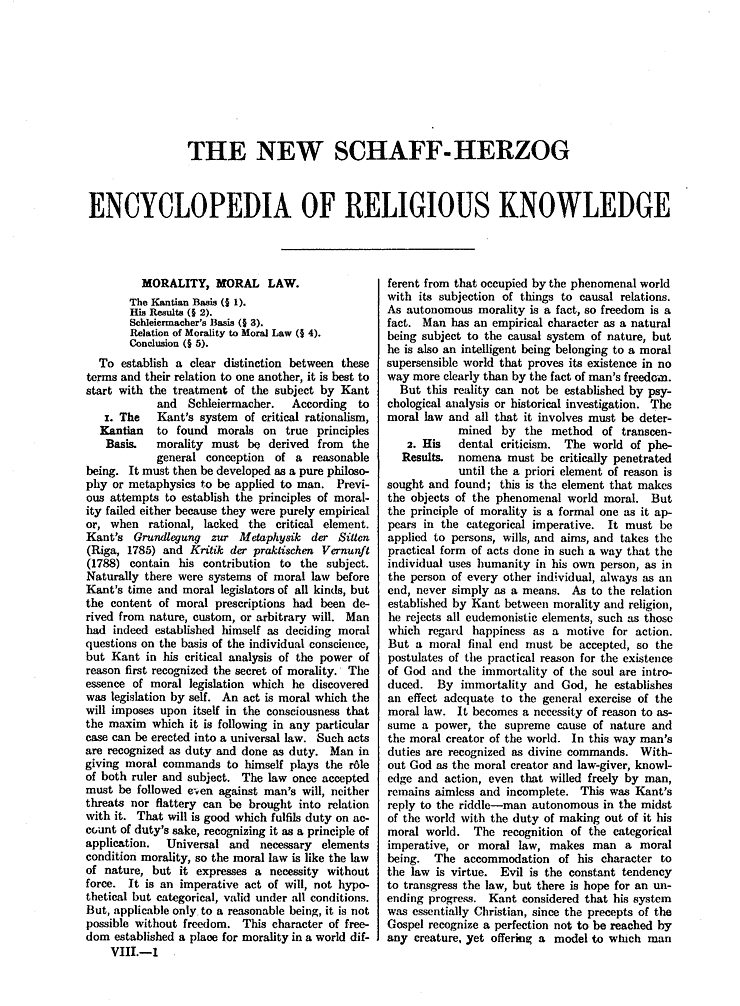
[
Page 1]
[
Page 2]
[
Page 3]
[
Page 4]
[
Page 5]
[
Page 6]
[
Page 7]
[
Page 8]
[
Page 9]
[
Page 10]
[
Page 11]
[
Page 12]
[
Page 13]
[
Page 14]
[
Page 15]
[
Page 16]
[
Page 17]
[
Page 18]
[
Page 19]
[
Page 20]
[
Page 21]
[
Page 22]
[
Page 23]
[
Page 24]
[
Page 25]
[
Page 26]
[
Page 27]
[
Page 28]
[
Page 29]
[
Page 30]
[
Page 31]
[
Page 32]
[
Page 33]
[
Page 34]
[
Page 35]
[
Page 36]
[
Page 37]
[
Page 38]
[
Page 39]
[
Page 40]
[
Page 41]
[
Page 42]
[
Page 43]
[
Page 44]
[
Page 45]
[
Page 46]
[
Page 47]
[
Page 48]
[
Page 49]
Muenzer
Mulberg
THE NEW SCHAFF-HERZOG
where all was already in a state of ferment, he de
livered inflammatory speeches, and by them as
well as by his writings he unsettled the conditions
more and more. Munzer longed to be back at
Mahlhausen, where his wife had remained, but did
not return at the earliest before the beginning of
1525. Pfeiffer had meanwhile returned and had
renewed his inflammatory course of action. They
both preached openly on the necessity of rebellion,
Pfeiffer taking the leading part, since he was the
very man to transform Mdnzer's theories into actu
ality. The communistic element became more
prominent and the number of radicals increased.
At the same time warlike preparations were made
and men were drilled as soldiers. On Afar. 16 the
council was deposed under the leadership of Pfeiffer,
and a new council was instituted upon the princi
ples established by the preachers. Miinzer held the
great mass of the people, but his influence was still
greater in Thuringia and in the Harz Mountains,
where he incited the people by letters and by the
formation of leagues. The inevitable consequences
of Miinzer's agitation now appeared. From the
South the peasants' movement approached and
spread over the whole of Thuringia, the Eichsfeld
and the Harz regions. The spiritual center was
Mahlhausen with its preachers, though Miinzer
did not appear as the real leader. People were not
willing to follow him blindly, and there were also
disagreements with Pfeiffer which hindered a uni
form advance. While Pfeiffer's marauding expe
ditions into the Eichsfeld occupied a part of the
insurgent forces and carried everywhere devasta
tion and destruction, Philipp of Hesse approached
after defeating the peasants around Hersfeld and
Fulda, and at the same time the peasants who had
gathered in the neighborhood of Frankenhausen
were threatened by Duke Georg and especially by
Count Ernst of Mansfeld. On May 10 Manzer came
to their assistance, and immediately broke off the
negotiations that had been entered upon with
Count Albrecht of Mansfeld. In the face of the
superior power of the princes the peasants again
entered upon new negotiations, but by false news
of victories from outside, by his eloquence and
trust in victory, and by his reference to signs sup
posed to be given him by God, the prophet once
more succeeded in deluding the hesitating people.
The bloody battle of Frankenhausen on May 15
decided the issue. On the following day Miinzer
was captured and delivered into the hands of Count
Ernst of Mansfeld at Heldrungen, was placed under
torture, and Georg of Saxony and Philipp of Hesse
took pains to convert him. After the surrender of
Miihlhausen Mtinzer was led there and put to death
together with Pfeiffer. (T.
KoLDE.)
BmIJOGRAPHY: A " History of Miinzer " printed at Hagenau, 1525, and reproduced in Walch's ed. of Luther's
Works, avi. 159 aqq., is ascribed to Melanchthon. Consult: G. T. Strobel, Leben, Schriften and Lehren Thoma
Muntzers, Nuremberg, 1791; J. K. Seidemann, Thomas
Manzer, Dresden, 1842; K. E. FSrstemann, Neues Urkundenbuch zur Gesehichle der evangelischen Kirchenreformation, i. 228, Hamburg, 1$42: G. Merx, Thomos Miinzer
and Heinrich Pfeiffer 1523-.25, GSttingen, 1889; A. H.
Newman, Hist. of Anti-Pedobartism, pp. 87-88, Philadelphia, 1897; K. Kautsky, Communism in Central Europe
in the Time
of
the Reformation, pp. 90-154, London, 1897
(sympathetic and apologetic): H. E. Jacobs, Martin Luther, pp. 253 aqq. et passim, New York, 1898: R. Jordan,
Chronik der Stadt Miilhausen, vol. i., Mtihlhausen, 1900;
idem, Zur Geachichte der Stadt Muhlhauaen, parts i.-ii.,
ib. 1901-02; E. Sehling, Die evangelischen Kirchenordnungen des 16. Jahrhunderts, i. 470 aqq., Leipsie, 1902;
H. C. Vedder, Balthazar Hiibmaier, pp. 97, 105-107, 160,
182. New York, 1905; H. Barge, Andrews Bodenatein von
Karlstadt, 2 vole., Leipaic, 1905; Moeller, Christian Church,
iii. 36, 62, 88, 93.




